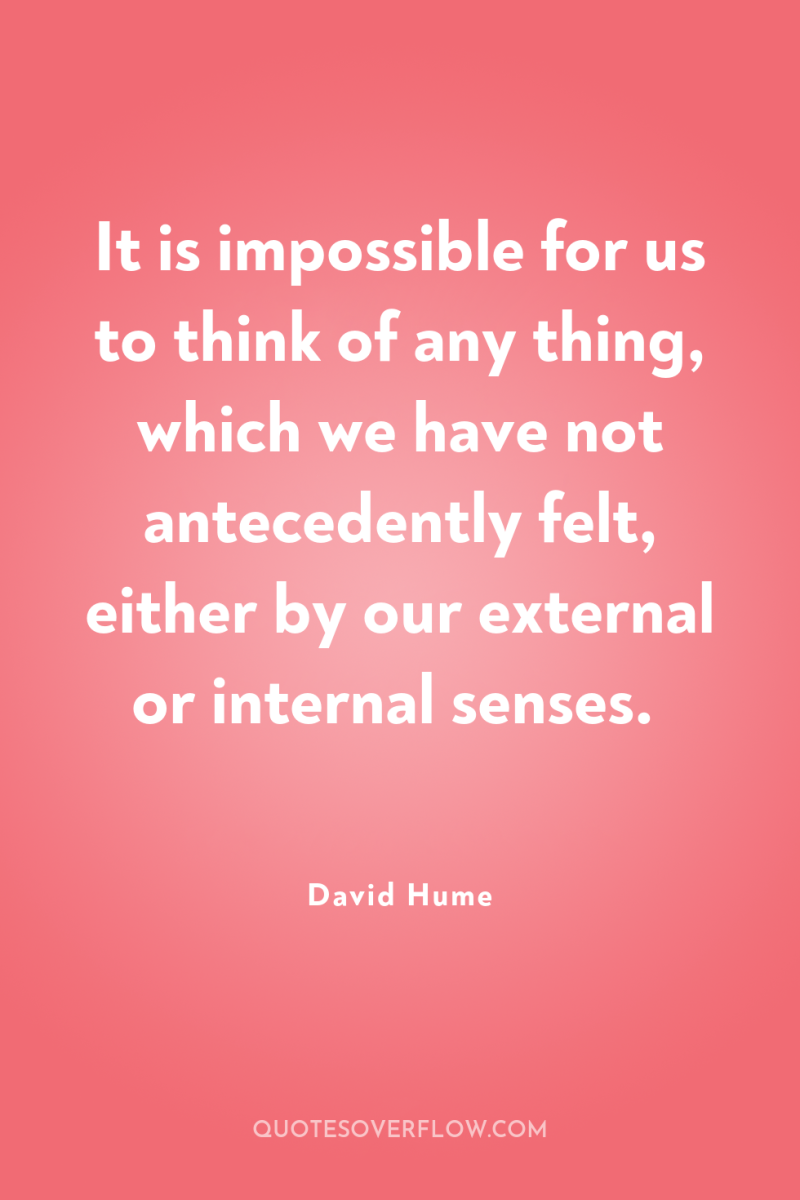
1
It is impossible for us to think of any thing, which we have not antecedently felt, either by our external or internal senses.David Hume
2
Here then we are first to consider a book, presented to us by a barbarous and ignorant people, written in an age when they were still more barbarous, and in all probability long after the facts which it relates, corroborated by no concurring testimony, and resembling those fabulous accounts, which every nation gives of its origin.David Hume
3
Indulge your passion for science…but let your science be human, and such as may have a direct reference to action and society. Be a philosopher; but amidst all your philosophy, be still a man.David Hume
4
Be a philosopher; but, amidst all your philosophy, be still a man.David Hume
5
A miracle is a violation of the laws of nature; and because firm and unalterable experience has established these laws, the case against a miracle is–just because it is a miracle–as complete as any argument from experience can possibly be imagined to be. Why is it more than merely probable that all men must die, that lead cannot when not supported remain suspended in the air, that fire consumes wood and is extinguished by water, unless it is that these events are found agreeable to the laws of nature, and for things to go differently there would have to be a violation of those laws, or in other words a miracle? Nothing is counted as amiracle if it ever happens in the common course of nature. When a man who seems to be in good health suddenly dies, this isn't a miracle; because such a kind of death, though more unusual than any other, has yet often been observedto happen. But a dead man’s coming to life would be a miracle, because that has never been observed in any age or country. So there must be a uniform experience against every miraculous event, because otherwise the event wouldn't count as a ‘miracle’. And as a uniform experience amounts to a proof, we have here a direct and full proof against the existence of any miracle, just because it’s a miracle; andsuch a proof can’t be destroyed or the miracle made credible except by an opposite proof that is even stronger. This clearly leads us to a general maxim that deserves ofour attention: No testimony is sufficient to establish a miracle unless it is of such a kind that its falsehood would be more miraculous than the fact that it tries to establish. And even in that case there is a mutual destruction ofarguments, and the stronger one only gives us an assurance suitable to the force that remains to it after the force needed to cancel the other has beensubtracted.David Hume
6
A body of ten ounces raised in any scale may serve as a proof, that the counterbalancing weight exceeds ten ounces; but can never afford a reason that it exceeds a hundred.David Hume
7
There is no method of reasoning more common, and yet none more blameable, than, in philosophical disputes, to endeavour the refutation of any hypothesis, by a pretence of its dangerous consequences to religion and morality. When any opinion leads to absurdities, it is certainly false; but it is not certain that an opinion is false, because it is of danger-ous consequence. Such topics, therefore, ought entirely to be forborne; as serving nothing to the discovery of truth, but only to make the personof an antagonist odious.David Hume